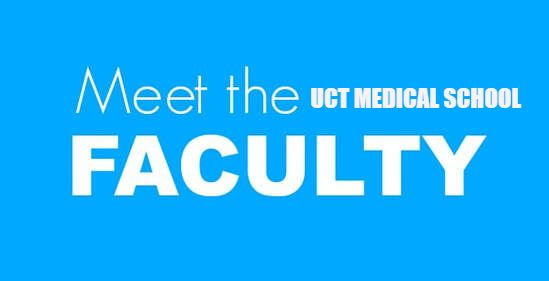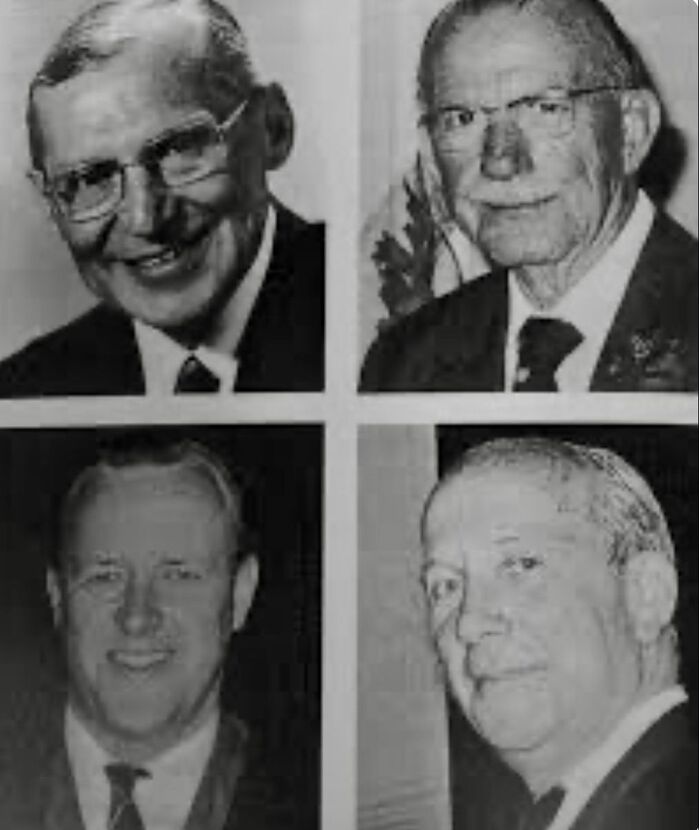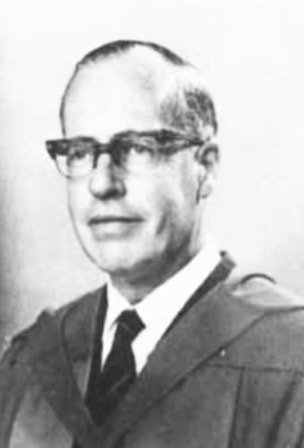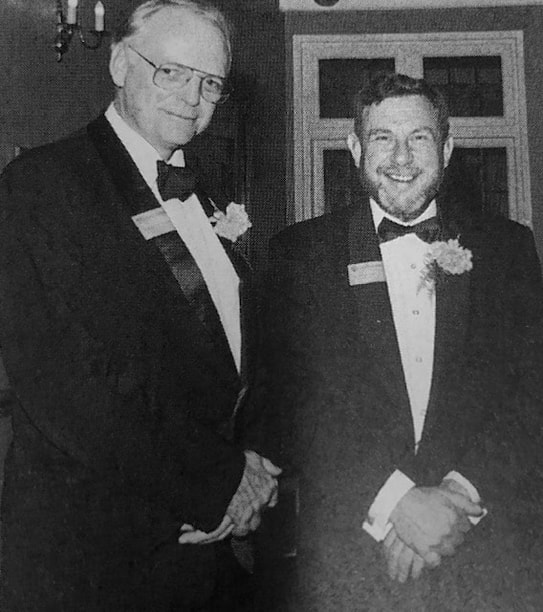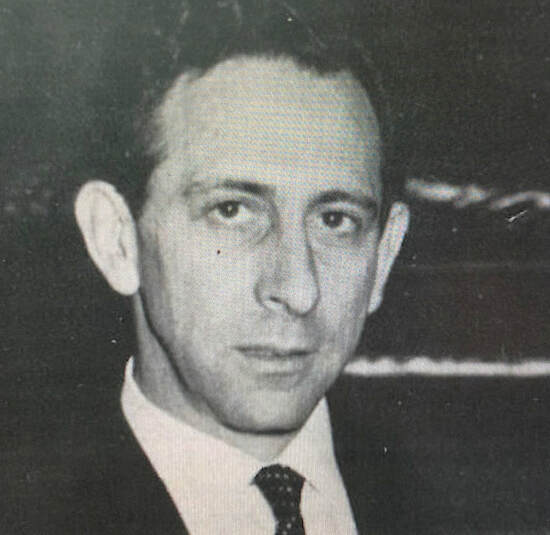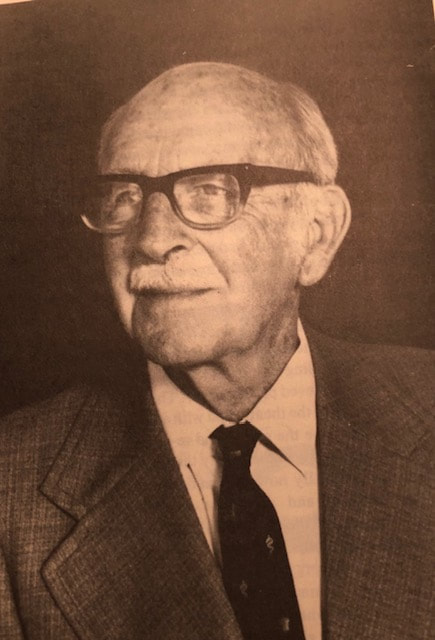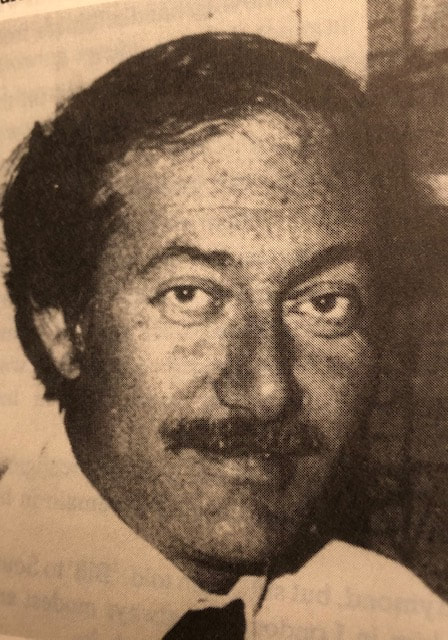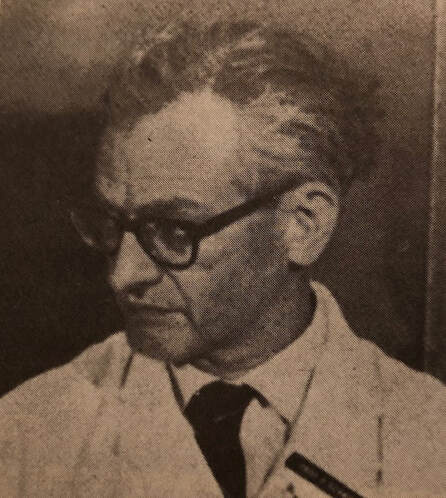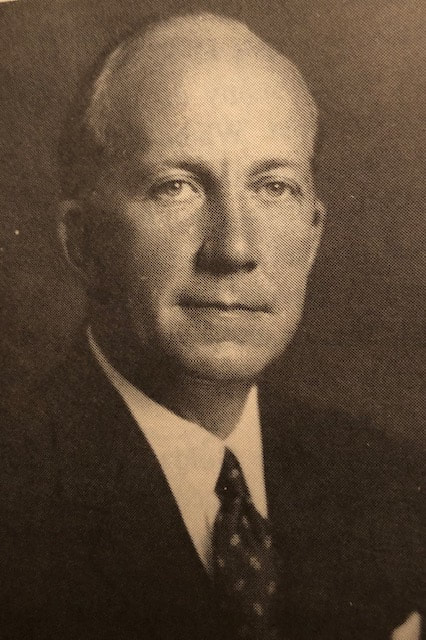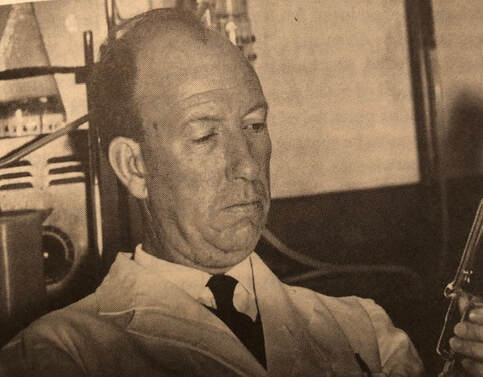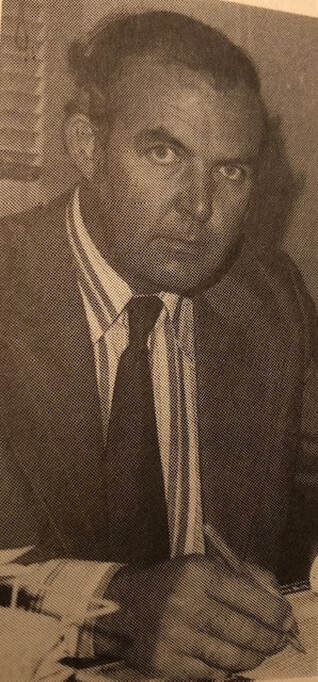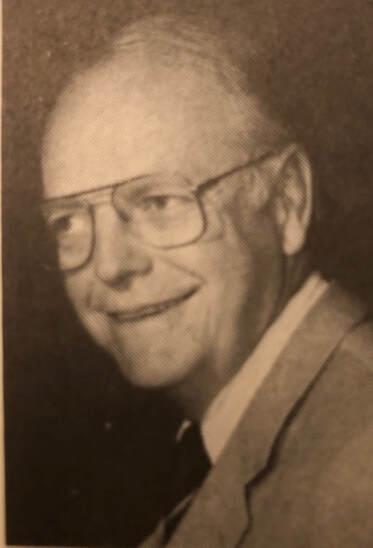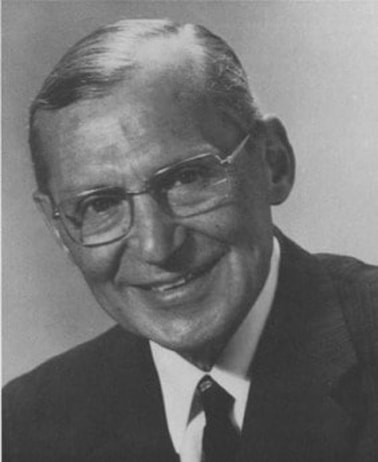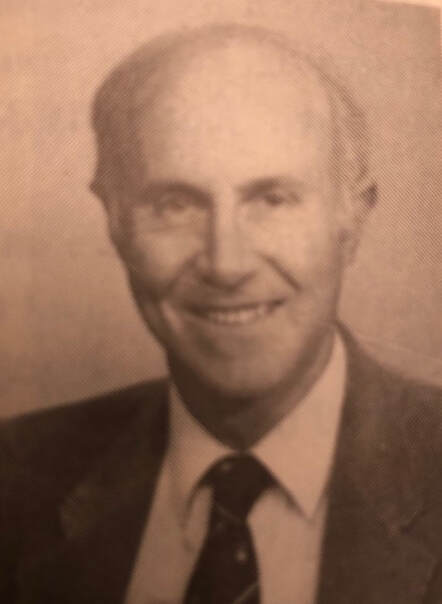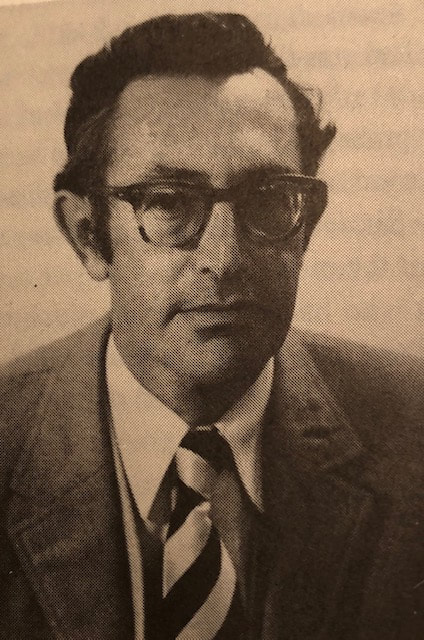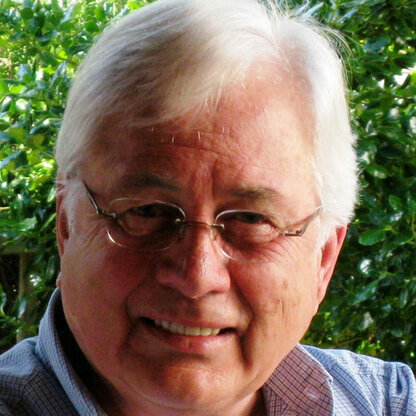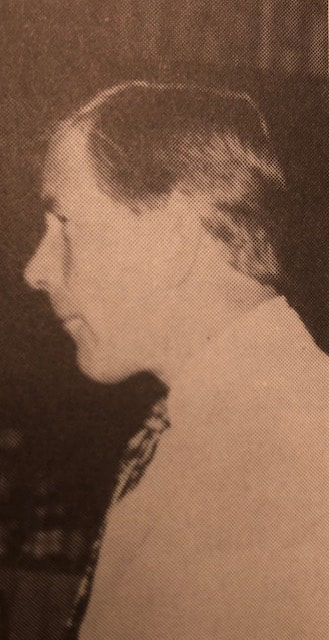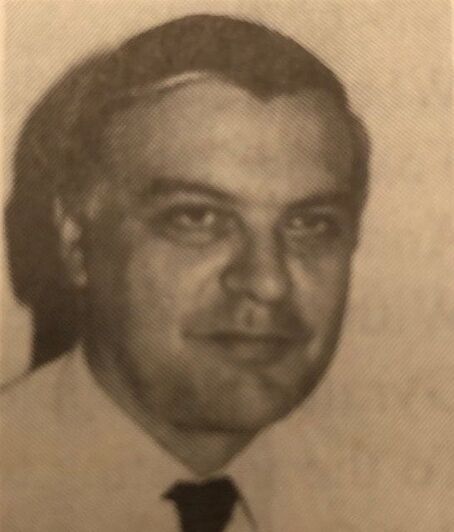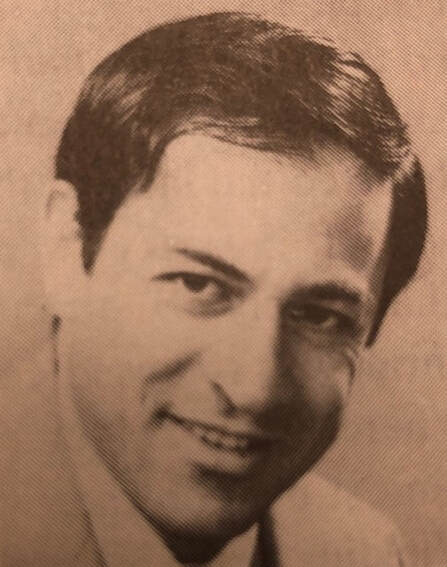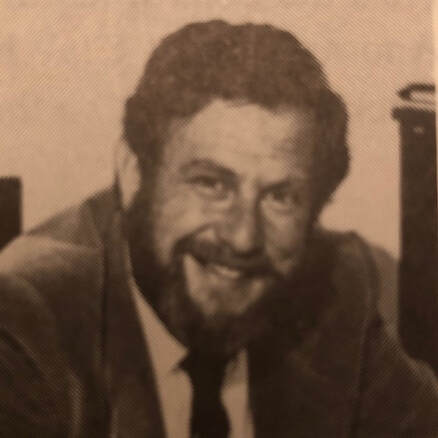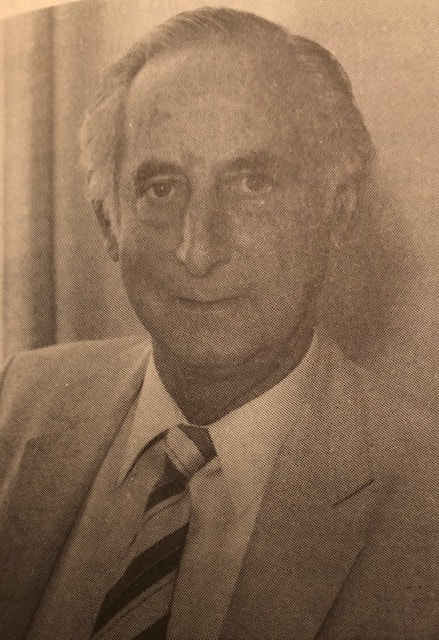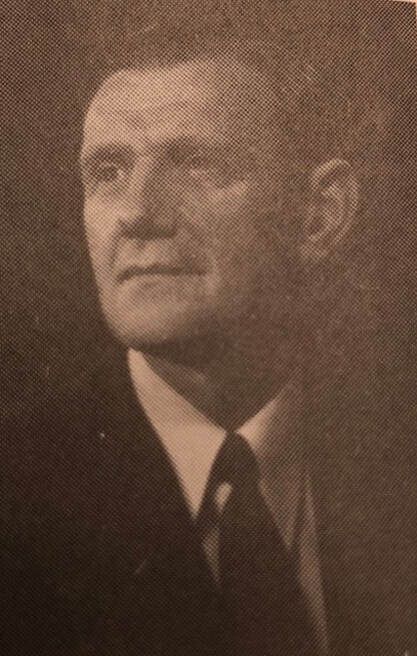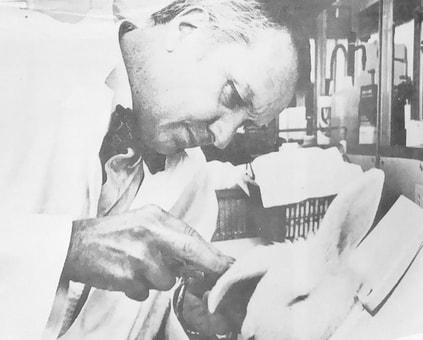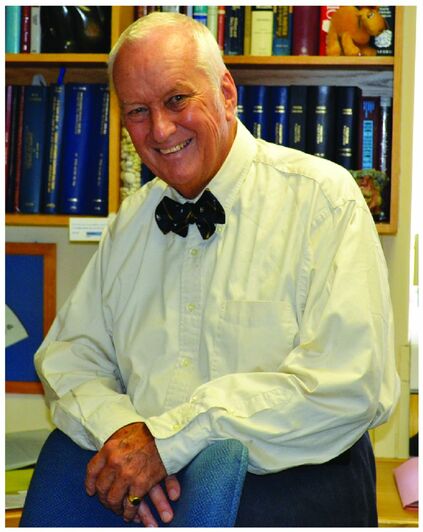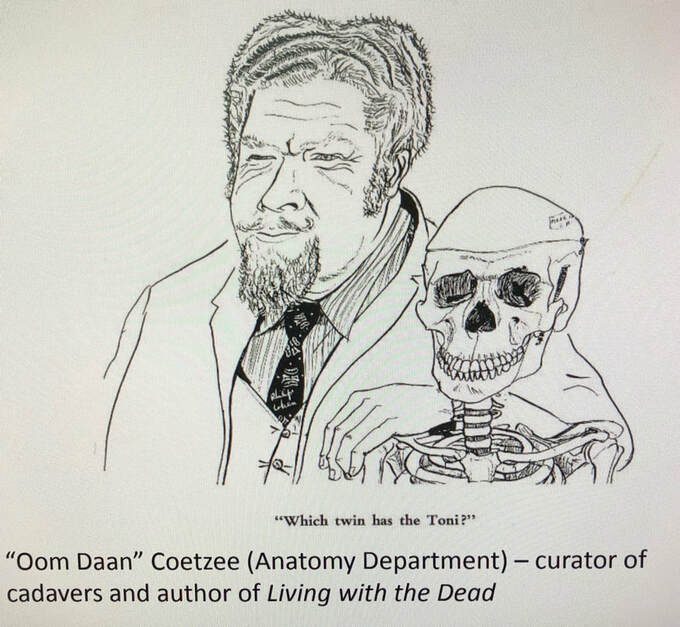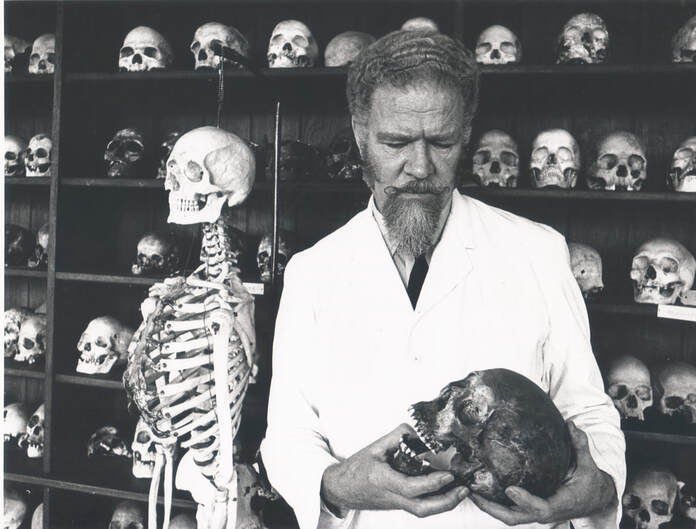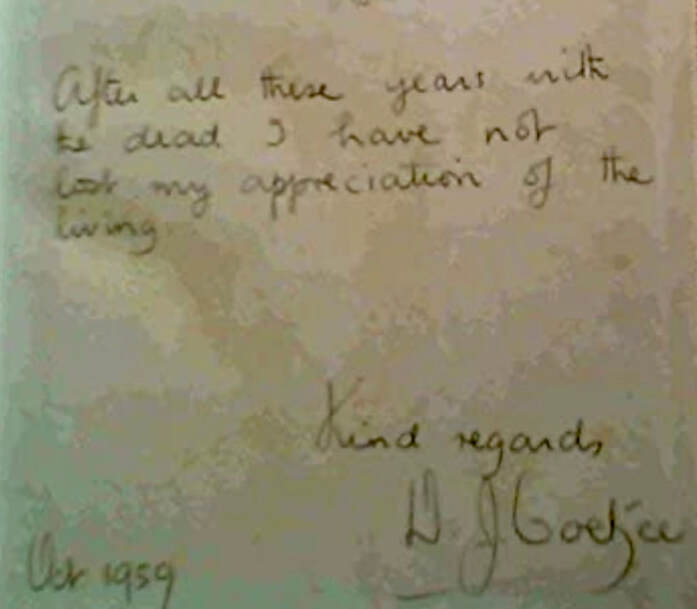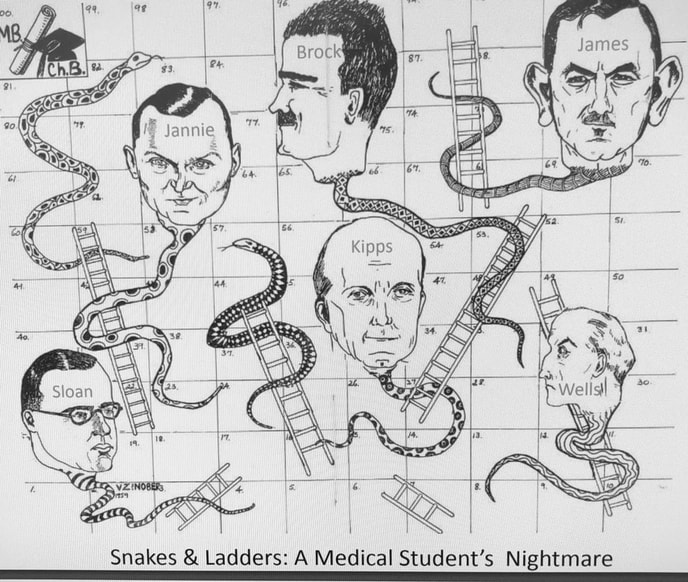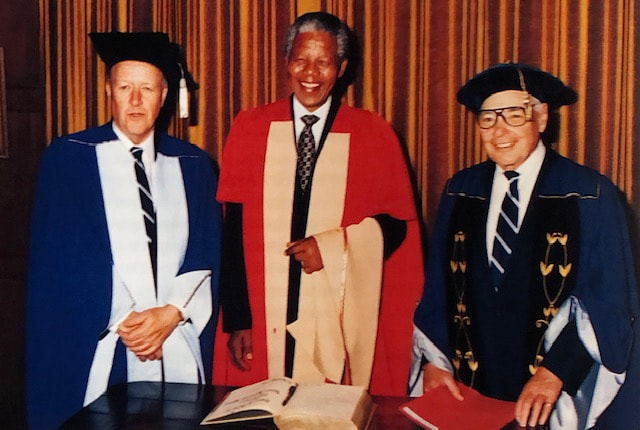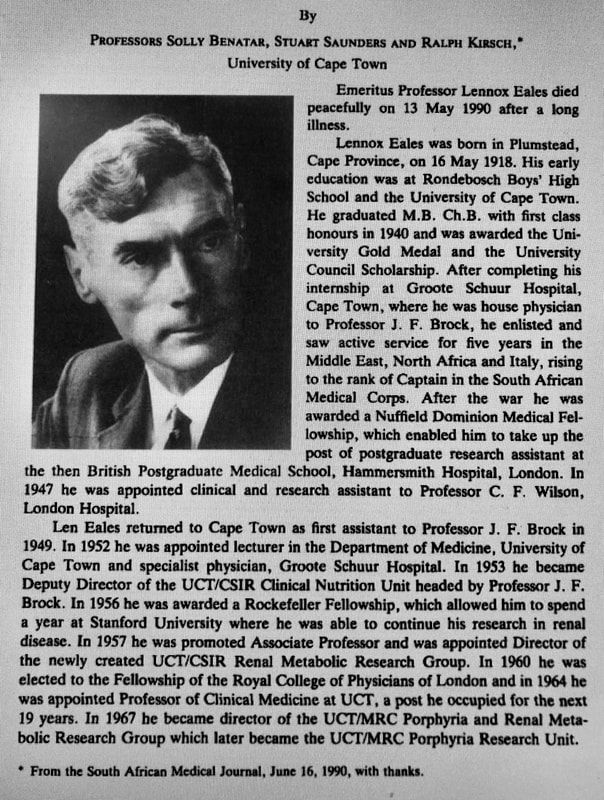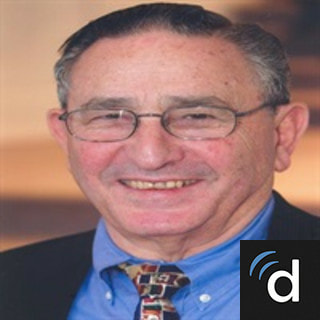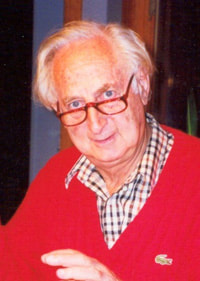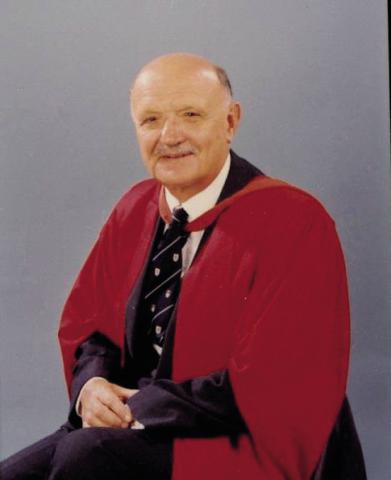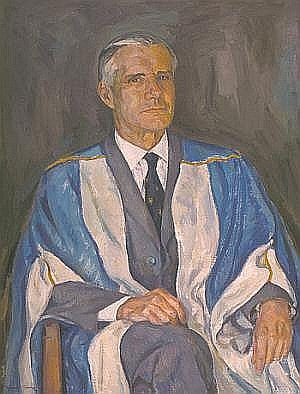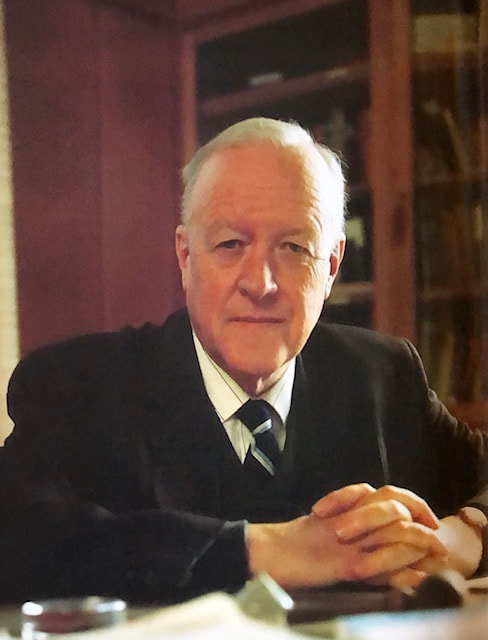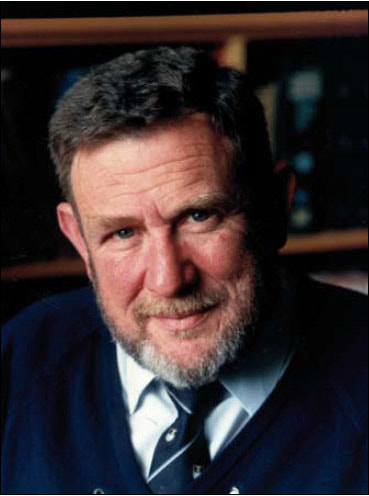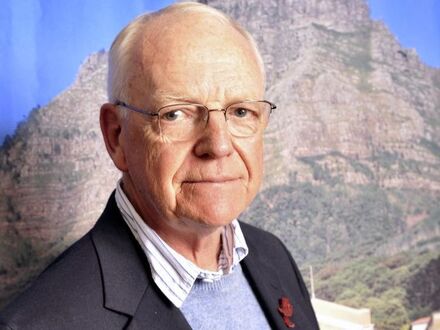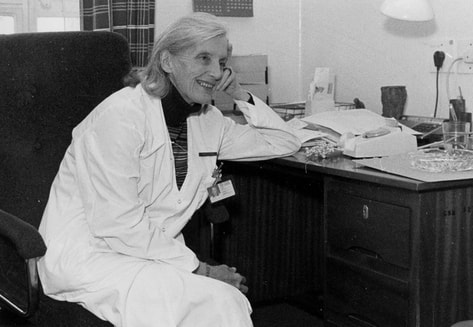 Dr. Frances Ames : Neurologist
Dr. Frances Ames : Neurologist
Francis Ames (1920 - 2002) had a distinguished career. Qualifying in 1942 with an MB ChB degree, she subsequently became the first woman to receive a Doctorate in Medicine (UCT, 1964), and then became Head of the Department of Neurology (1976 - 1986). She outspokenly propagated the therapeutic value of cannabis and fought for its decriminalization. An ardent human rights activist she was one of few doctors during the apartheid years willing to speak out against human rights abuses, often at great risk to her professional career. An act of singular courage as part of a group of doctors was to take the then South African Medical and Dental Council to court over its failure to discipline the doctors who allowed black consciousness leader Steve Biko to die through their neglect. The case was finally won, restoring credit to the medical profession in South Africa. She was made an Emeritus Associate Professor (1997) and was awarded the degree of Doctor of Science in Medicine (honoris causa, 2001). President Nelson Mandela conferred on her the Star of South Africa, the country's highest civilian award.
JAN HENDRIK LOUW
(1915 - 1992)
Professor Jannie Louw was born on 26 May 1915 in Middleburg, South Africa, the son of a schoolmaster who later became a school inspector. He was educated at Rondebosch High School in Cape Town and the University of Cape Town Medical School, where he graduated in 1938 with distinction. After junior appointments in the newly-opened Groote Schuur Hospital and a short spell in general practice, he joined the South African Medical Corps and served with the 8th army in North Africa from 1941 to 1945 with the rank of captain, escaping from Tobruk when it was besieged.
In 1943 he married Cathy van Breda, a nurse at Groote Schuur Hospital. Their first son died from congenital intestinal atresia, and this stimulated his subsequent interest in paediatric surgery and this condition in particular. He took his MCh degree in 1946, and was then appointed assistant surgeon at Groote Schuur Hospital and the University of Cape Town. He won a Nuffield Dominion Travelling Fellowship to Europe in 1951 and worked for much of that time at the Hospital for Sick Children in Great Ormond Street. He was appointed associate professor at the University of Cape Town in 1954 and a year later to the chair of surgery there. He was also surgeon-in-chief at Groote Schuur Hospital and the Red Cross Children's Hospital, posts which he held for the next 26 years.
Jannie Louw was the founder of paediatric surgery in South Africa, and he was also instrumental in establishing the various surgical specialties as independent entities, with their own departmental heads. He became world-renowned as a clinician, teacher, researcher and administrator, and he received numerous honorary degrees and awards from overseas universities and colleges, including all the English-speaking colleges. He was also President of the College of Medicine of South Africa for two terms, and a member of the South African Medical Research Council. He delivered the Moynihan Lecture to the College in 1959, and was awarded the Dennis Brown Gold Medal of the British Association of Paediatric Surgeons. The South African Decoration of Meritorious Service was awarded to him by the state president in 1980.
He was also a medical historian of note and in 1969 he published In the shadow of Table Mountain, recording the history of the University of Cape Town Medical School. Tireless and immensely hard-working, he inspired many generations of surgeons and nurses by the high standards of treatment of children under his care, but woe betide anyone who let those standards slip!
He retired in 1980 but carried on his many interests, including foreign travel. Cathy, his wife and staunchest supporter, died in 1991, and when he died on 7 May 1992 after a short illness, he was survived by his three children, Robert, Katherine and Eleanor.
(1915 - 1992)
Professor Jannie Louw was born on 26 May 1915 in Middleburg, South Africa, the son of a schoolmaster who later became a school inspector. He was educated at Rondebosch High School in Cape Town and the University of Cape Town Medical School, where he graduated in 1938 with distinction. After junior appointments in the newly-opened Groote Schuur Hospital and a short spell in general practice, he joined the South African Medical Corps and served with the 8th army in North Africa from 1941 to 1945 with the rank of captain, escaping from Tobruk when it was besieged.
In 1943 he married Cathy van Breda, a nurse at Groote Schuur Hospital. Their first son died from congenital intestinal atresia, and this stimulated his subsequent interest in paediatric surgery and this condition in particular. He took his MCh degree in 1946, and was then appointed assistant surgeon at Groote Schuur Hospital and the University of Cape Town. He won a Nuffield Dominion Travelling Fellowship to Europe in 1951 and worked for much of that time at the Hospital for Sick Children in Great Ormond Street. He was appointed associate professor at the University of Cape Town in 1954 and a year later to the chair of surgery there. He was also surgeon-in-chief at Groote Schuur Hospital and the Red Cross Children's Hospital, posts which he held for the next 26 years.
Jannie Louw was the founder of paediatric surgery in South Africa, and he was also instrumental in establishing the various surgical specialties as independent entities, with their own departmental heads. He became world-renowned as a clinician, teacher, researcher and administrator, and he received numerous honorary degrees and awards from overseas universities and colleges, including all the English-speaking colleges. He was also President of the College of Medicine of South Africa for two terms, and a member of the South African Medical Research Council. He delivered the Moynihan Lecture to the College in 1959, and was awarded the Dennis Brown Gold Medal of the British Association of Paediatric Surgeons. The South African Decoration of Meritorious Service was awarded to him by the state president in 1980.
He was also a medical historian of note and in 1969 he published In the shadow of Table Mountain, recording the history of the University of Cape Town Medical School. Tireless and immensely hard-working, he inspired many generations of surgeons and nurses by the high standards of treatment of children under his care, but woe betide anyone who let those standards slip!
He retired in 1980 but carried on his many interests, including foreign travel. Cathy, his wife and staunchest supporter, died in 1991, and when he died on 7 May 1992 after a short illness, he was survived by his three children, Robert, Katherine and Eleanor.
Sapeika : Pharmacologist Thompson : Pathologist
And don't forget.......
Wells and Wilson; Sloan and Isaacson; Kipps and Forder; Thompson, Selzer, Uys and Rose; Sapeika; Kench; Smith; Gillis; Davey, Craig, Michael and Baillie; Brock, Saunders, Jackson, Eales, Kirsch, Dowdle, Ames, Brown, Ferguson, Thatcher, Jacobs; Epstein, Bank, Meyers and Keeton; Louw, Lewer-Allen, Terblanche, de Villiers, Immelman and Dent; Heese and Leary.
STUART SAUNDERS
LENNOX EALES
MB ChB Cape Town(1940) MRCP(1947) MD(1954)FRCP(1960) FRS(SA)1979
04 April 1918 – 05 January 1990
MB ChB Cape Town(1940) MRCP(1947) MD(1954)FRCP(1960) FRS(SA)1979
04 April 1918 – 05 January 1990
Lennox Eales was born in Plumstead, South Africa. His father William Clarence Eales was a university lecturer and his mother Hilda Mary, née Webber, was the daughter of a businessman. His early education was at Rondebosch Boys High School and he went on to the University of Cape Town to study medicine. He graduated with first class honours, pursuing his clinical studies at Groote Schuur Hospital, and was awarded the university gold medal and the university council scholarship. After completing his internship at the Groote Schuur, where he was house physician to J F Brock, he enlisted in the South African Medical Corps and saw active service for five years in the Middle East, North Africa and Italy, rising to the rank of captain.
After the war he was awarded a Nuffield Dominion medical fellowship which enabled him to come to Britain and take up a post as postgraduate research assistant at the Royal Postgraduate Medical School, Hammersmith. He obtained his membership of the College in 1947 and was appointed clinical and research assistant to Clifford Wilson at the London Hospital.
In 1949 he returned to Cape Town to take up a post as first assistant to J F Brock and in 1952 was appointed lecturer in the department of medicine at the University of Cape Town, and specialist physician at the Groote Schuur Hospital. He became deputy director of the University/CSIR clinical nutrition unit, which was headed by Brock, and in 1956 was awarded a Rockefeller fellowship which allowed him to spend a year at Stanford University, USA, where he continued his research into renal disease. On his return in 1957 he was promoted to associate professor and appointed director of the newly created UCT/CSIR renal metabolic research group. He was elected to the fellowship of the College in 1960 and in 1964 was appointed professor of clinical medicine at the University of Cape Town, a post he occupied for the next 19 years. He became director of the UCT/MRC porphyria and renal metabolic research group in 1967, which later became the UCT/MRC porphyria research unit.
Len Eales excelled in every sphere of academic medicine. He set great store on clear, logical thinking in clinical practice and his incisive approach to difficult diagnostic problems resulted in his opinion being sought by colleagues practising all over South Africa. His knowledge of his field extended well beyond that of the ordinary clinician; he revelled in complex chemistry, biochemistry and physiology. For him metabolic pathways, water, electrolyte and acid/base balance were a source of delight to be shared with his colleagues and students. This enthusiasm, logical approach and ability to synthesize complex information, made him a great teacher.
Eales’ research in the field of porphyria gained him international recognition. He published his first paper in this field as a fifth year medical student and he went on to become a world authority on the clinical and laboratory features of variegate porphyria in general and of the acute porphyria attack. The first and second international conferences on porphyria, organized by Eales and held in Cape Town in 1963 and 1971, attracted the world’s most distinguished researchers in this field. Len Eales published more than 160 papers and edited or contributed to many books. Most important of all was his ability to stimulate and train a large number of young biochemists and physicians, many of whom are still working as nephrologists or in the field of porphyria.
Eales received numerous awards in recognition of his work, including the silver medal of the Medical Research Council of South Africa. He was elected a life fellow of the University of Cape Town in 1963 and a Fellow of the Royal Society of South Africa in 1979. In 1985 his friends and students honoured him with a festschrift on porphyria, published as a book by Clinics in Dermatology.
Len Eales’ health began to fail in the late 1960s. Typically, he bore this with great fortitude. He seldom complained, even when a bad fall resulted in a fractured femur he hid his pain and entertained those visiting him in hospital with ‘lectures’ on porphyria, the history of the second world war, or the cultivation of proteas and ericas. Sadly, his illness prevented him from enjoying his hobbies after his retirement in 1983, but he remained an avid reader; the history of the second world war and ancient history being his favoured topics.
Eales loved nature. As a young boy he enjoyed fishing in Kalk Bay, and as a young man he excavated historic pre-bushman caves in the mountains above the Bay. His later hobbies included developing a protea plantation at the family home in Pringle Bay where he collected and propagated rare and endangered species of this national flower.
Len Eales married Irene Gee in 1946. They had three children: Peter Lennox, Patricia Anne and Margaret Jane. Irene’s quiet but intense devotion and care for Len served as an inspiration for all who knew them.
Lennox Eales made an indelible impression on medicine in South Africa, his influence being felt not only in Cape Town but in porphyria laboratories throughout the world.
S Benatar, S Saunders, R Kirsch
"THE GASTRIC JEWS"
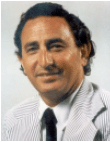
Simmy Bank
In 1961 Solly and I (The "Gastric Juice") started "SAGES", beginning a partnership of twenty-six extraordinary years.
This is a time that I will never forget: Solly's incredibly sharp mind, invaluable skills and striking personality were a vast influence on me, and eventually stood me in great stead when heading a GI Department both at Groote Schuur and in the USA and still counting.
I would be unable to tally up the number of times that I have quoted Solly's aphorisms, advice, personality traits and expertise to scores of Fellows, Residents, Consultants, Surgeons in the USA " to the point that he is as well know in America, through this as through his publications.
Those endless nights that we laboured till the early hours of the morning, over our plus-minus, two hundred and fifty publications and abstracts, doing our own statistics in now antique machines, are still fresh in my mind, but most of all the smoking and endless slithers of biltong, deftly cut with Solly's pocket knife.
While completing our "Magnum Opus", on Pancreatic Disease in his Clifton flat, the record of "Arrivederci Roma" repeated itself at least a hundred times while I battled to finish graphs, with Solly taking the odd nap till we cracked the paper.
When Dr. Renshaw, a home grown Sexologist, returned from the USA and was giving a lecture at the same time as our original SAGES meeting, only three stalwarts gathered to hear us. Solly summed up the situation with his usual aplomb as "Sex beats GI every time".
We were the first to mix different races at our Clinic and to have to defend ourselves to patients who complained about the use of the same equipment for White and Black.
Solly introduced the "Saturday Morning Special", where it was mandatory for Second Year Medical Students to have an intubated Gastric Acid test before they could advance to the third year. Highly illegal, but much invaluable data.
The "Coup de Gras", came when Solly was asked to endoscope the second most expensive racehorse in South Africa: That saga, a story on its own, as this was the first animal to be endoscoped will live on in history or infamy. The only regret was that we did not film the episode as we would have no doubt won the Cannes Film Festival award for best documentary.
As the word spread of our endoscopic expertise, Solly was asked to locate, by helicopter, a missing bolt from the engine of an offshore tanker. The enthusiasm, by both of us for this venture can only be described as underwhelming, but Solly nevertheless undertook this fruitless enterprise.
Medical patient and staff stories of "Sollyisms", range from the ridiculous to the truly sublime, but it is because of his enthusiasm and work ethic that we did more investigations in the 1960's, in one room, in one day (3 acid tests, 2 pancreatic function tests, 2 intestinal biopsies, 3-6 rigid endoscopies, as well as fitting in ward rounds) than most GI units achieved in many weeks.
Hail to the Chief!
Simmy Bank
North Shore/Long Island Jewish Health Systems
Professor of Medicine
Albert Einstein College of Medicine, New York
In 1961 Solly and I (The "Gastric Juice") started "SAGES", beginning a partnership of twenty-six extraordinary years.
This is a time that I will never forget: Solly's incredibly sharp mind, invaluable skills and striking personality were a vast influence on me, and eventually stood me in great stead when heading a GI Department both at Groote Schuur and in the USA and still counting.
I would be unable to tally up the number of times that I have quoted Solly's aphorisms, advice, personality traits and expertise to scores of Fellows, Residents, Consultants, Surgeons in the USA " to the point that he is as well know in America, through this as through his publications.
Those endless nights that we laboured till the early hours of the morning, over our plus-minus, two hundred and fifty publications and abstracts, doing our own statistics in now antique machines, are still fresh in my mind, but most of all the smoking and endless slithers of biltong, deftly cut with Solly's pocket knife.
While completing our "Magnum Opus", on Pancreatic Disease in his Clifton flat, the record of "Arrivederci Roma" repeated itself at least a hundred times while I battled to finish graphs, with Solly taking the odd nap till we cracked the paper.
When Dr. Renshaw, a home grown Sexologist, returned from the USA and was giving a lecture at the same time as our original SAGES meeting, only three stalwarts gathered to hear us. Solly summed up the situation with his usual aplomb as "Sex beats GI every time".
We were the first to mix different races at our Clinic and to have to defend ourselves to patients who complained about the use of the same equipment for White and Black.
Solly introduced the "Saturday Morning Special", where it was mandatory for Second Year Medical Students to have an intubated Gastric Acid test before they could advance to the third year. Highly illegal, but much invaluable data.
The "Coup de Gras", came when Solly was asked to endoscope the second most expensive racehorse in South Africa: That saga, a story on its own, as this was the first animal to be endoscoped will live on in history or infamy. The only regret was that we did not film the episode as we would have no doubt won the Cannes Film Festival award for best documentary.
As the word spread of our endoscopic expertise, Solly was asked to locate, by helicopter, a missing bolt from the engine of an offshore tanker. The enthusiasm, by both of us for this venture can only be described as underwhelming, but Solly nevertheless undertook this fruitless enterprise.
Medical patient and staff stories of "Sollyisms", range from the ridiculous to the truly sublime, but it is because of his enthusiasm and work ethic that we did more investigations in the 1960's, in one room, in one day (3 acid tests, 2 pancreatic function tests, 2 intestinal biopsies, 3-6 rigid endoscopies, as well as fitting in ward rounds) than most GI units achieved in many weeks.
Hail to the Chief!
Simmy Bank
North Shore/Long Island Jewish Health Systems
Professor of Medicine
Albert Einstein College of Medicine, New York
A SAMPLE OF CLASSIC "SOLLYISMS"
"Mundus vult decipe, ergo decipiatur"
"And all the Egyptians were drownded"
"It is more important that a proposition be interesting, than it be true"
"The aim in treating constipation is to get the patient to pass a large banana"
"Knowing when to do a test is more important than knowing how to do it"
"See the patient before the laboratory data"
"Before getting too excited about a statistical result, ask if it really means anything to the patient"
"Nothing short of the Resurrection will cure that patient's abdominal pain"
"Sewing moonbeams to flatus"
"It is only the fish who open their mouths that get caught"
"From the foot of the bed : Neanderthal !"
Concerning anyone who may have a sexually transmitted disease : "Have you asked them about perineal nystagmus ?"
"In my day research was 90% thinking and 10% gadgets; now it's the other way round". (circa 1970's " what is he saying now ?)
A few seconds before withdrawing a semi-rigid gastroscope and manually pumping the patients' stomach full of air: "Metro Goldwyn Meyer presents !"
"Even an autopsy wouldn't tell us what is going on in this patient"
"Nothing but the Resurrection will make this guy/girl better"
Instruction to a patient on how to find his rooms for a follow-up visit : "Get off the train at Cape Town station and then follow the crowds"
"We like to learn, but we hate being taught"
Giving an article to read with instructions " "Compulsory toilet reading"
"God is good and Allah is merciful"
"Mundus vult decipe, ergo decipiatur"
"And all the Egyptians were drownded"
"It is more important that a proposition be interesting, than it be true"
"The aim in treating constipation is to get the patient to pass a large banana"
"Knowing when to do a test is more important than knowing how to do it"
"See the patient before the laboratory data"
"Before getting too excited about a statistical result, ask if it really means anything to the patient"
"Nothing short of the Resurrection will cure that patient's abdominal pain"
"Sewing moonbeams to flatus"
"It is only the fish who open their mouths that get caught"
"From the foot of the bed : Neanderthal !"
Concerning anyone who may have a sexually transmitted disease : "Have you asked them about perineal nystagmus ?"
"In my day research was 90% thinking and 10% gadgets; now it's the other way round". (circa 1970's " what is he saying now ?)
A few seconds before withdrawing a semi-rigid gastroscope and manually pumping the patients' stomach full of air: "Metro Goldwyn Meyer presents !"
"Even an autopsy wouldn't tell us what is going on in this patient"
"Nothing but the Resurrection will make this guy/girl better"
Instruction to a patient on how to find his rooms for a follow-up visit : "Get off the train at Cape Town station and then follow the crowds"
"We like to learn, but we hate being taught"
Giving an article to read with instructions " "Compulsory toilet reading"
"God is good and Allah is merciful"
HANS DE V "BOET" HEESE
In 1970, ‘Boet’ Heese succeeded Findlay Ford as second Professor of Paediatrics and Child Health at the University of Cape Town. During his stewardship, which ended in 1989, the Department grew to be one of the largest and most productive in the Faculty of Medicine. How was this achieved?
Boet was an adventurer and before his professorship he established the first intensive care unit for newborn babies in the country. It was one of a handful in the world, at a time when the word neonatology did not exist.
When problems were encountered he would say ‘If it is in the books it can be done’, but on this occasion the books had not yet been written. So he set about rectifying the omission and in the ensuing decade his protégés carried the word to all corners of the earth.
He constantly used his imagination and claimed that he got his bright ideas while meditating in the bath. These he would impart to his junior staff and challenge them to come up with answers. He stressed the importance of keeping their eyes and ears open for clues to discoveries, no matter how tenuous they may be.
Not all of his ideas were successful. On the contrary, some were spectacular failures. He fancied himself as an inventor, and the Heese Mark 1 and 2 infant respirators literally went up in smoke, fortunately before they were used on babies! His response to setbacks of this nature was to quote the headmaster of his old school: ‘Every step backwards is an opportunity for greater achievement’.
In an earlier tribute, Professor Matt Haus wrote: ‘He was a brave decision-maker’. How true! But not all decisions were popular. To quote Matt again: ‘What he did, he did unequivocally for his Department and not for himself’. I would add ‘You might dislike him but you could not disrespect him’.
Boet had an ability to befriend those with whom he worked – administrators, nursing staff, technicians, cleaners. They in turn would always go the extra mile to oblige him. Then too, his innumerable motivations for staff, equipment or research funds were so detailed and convincing that they were rarely declined.
He was not afraid of death and two weeks after his dear wife Margaret had died he quietly departed this earth.
Jake, Sue, Ashleigh and Abbey, we thank you for sharing your father and grandfather with us. We are all the richer for this honour.
Vincent Harrison
SIR RICHARD LUYT
Sir Richard Luyt, who died in Cape Town on February 12, 1994, led the University as it Vice-Chancellor from 1968 to 1980. Through the difficult decade of the 1970s he protested vigorously against the banning and detention without trial of staff and students for whom apartheid and the restrictive laws of the time were anathema. There were times when he placed himself between the riot police and students demonstrating on campus; and on many occasions he challenged the authorities in the name of academic freedom. All this he did quietly, with dignity and authority. That was his style.
Speaking to a full church at a memorial service in St Paul’s Church, Rondebosch on February 16, Dr Stuart Saunders described Sir Richard as ‘an extraordinary man—a man of great physical and moral courage, of integrity and of transparent honesty.’ Dr Saunders continued:
‘He was among that rare breed who could see injustice and wrong clearly and act against them when the view of the majority in the society around him was a contrary one. He actively protested against the death penalty; against detention without trial and banning and house-arrest, and was a steady supporter of the End Conscription Campaign.
‘A member of the 1982 SRC who was active in the ECC has told me that Sir Richard’s support, quietly given, had been a great source of strength for them.
‘Our political masters at the time found this particularly difficult to handle, given Sir Richard’s distinguished military career and his outstanding record as a Colonial Administrator, including the exercise of absolute rule as the Governor of British Guiana during a state of emergency (something they also had experienced, but to which they had not applied Sir Richard’s high moral standards).
‘He will be remembered as a builder, as one who set great enterprises on the right course—the independence of Kenya, Zambia and Guyana—and here at home the leadership that he gave to the University of Cape Town through 13 turbulent years.
‘We owe an enormous debt to him at the University for his leadership and determination, for his honesty and for the quiet, dignified way in which he did things, and for his endless patience with staff and students. I am deeply in his debt for his help to me, for his example and for his friendship.
‘His undergraduate days at the University of Cape Town, his Rhodes Scholarship days at Oxford, his military and colonial service—the latter ending with high civil honours—are well known to you all. His prowess on the rugby and cricket fields and his love of sport, which lasted all his life, were part of Dick the extraordinary man.
‘After his retirement from UCT he did not spare himself, whether working for the South African Institute for Race Relations, particularly in the field of bursaries for students; for the South African Red Cross Society; for the Civil Rights League; as Chairman of the Friends of NUSAS and as a member of the Board of Directors of the Mauerberger Foundation. He was a formidable member of committees—always did his homework thoroughly and spoke forthrightly and with conviction.
‘We extend to Betty and to the entire family our sympathy and love, in the knowledge that they will take strength from a multitude of memories of this truly extraordinary man, who was so dear to them.
‘He was my Vice-Chancellor, he was my patient and he was my friend—I have never known a finer man!’
Stuart Saunders
Vice-Chancellor
SID CYWES
We are tremendously saddened to let you know that Prof Sidney Cywes passed away on 6 April 2020 following a short illness.
Our immediate thoughts and prayers are with his wife Marlene, children Robert and Colette and their families.
Professor Cywes was born on 1 January 1931 in Paarl, in the Western Cape. He graduated from University of Cape Town with MBChB in 1953. He became a lecturer in Surgery (UCT) in 1961 and remained at the Red Cross War Memorial Children’s Hospital throughout his career. He was the first surgeon in South Africa to restrict his practice entirely to Paediatric Surgery. In 1975 he was appointed as the first incumbent of the Charles FM Saint Chair of Paediatric Surgery, a position which he held until his retirement in 1996
.
He became involved in and played a leadership role in many professional societies and organisations. He has been the Past President of World Federation of Associations of Paediatric Surgeons (WOFAPS), Founding Member and President of South African Association of Paediatric Surgeon and Honorary Life Member of British Association of Paediatric Surgeons and was instrumental in helping establish the Pan African Association of Paediatric Surgeons.
He was awarded Honorary Fellowship and Membership of the American College of Surgeons, the Royal Australasian College of Surgeons, the Royal College of Surgeons of England, the Royal College of Surgeons of Edinburgh, the Royal College of Physicians and Surgeons of Glasgow and the American Academy of Paediatrics and was made a Fellow of the University of Cape Town.
He published numerous articles in peer review journals, authored many textbook chapters and edited several books on paediatric surgical subjects. He had special interest in management of complex paediatric surgical conditions, which included separation of conjoined twins, ano-rectal malformations, Hirschsprung’s Disease, surgical oncology, oesophageal replacement surgery and solid organ transplantation.
Prof Sidney Cywes was a true visionary. Observing the large and growing toll of child injury deaths, the progressive nature of childhood injuries and the frequently long-lasting effects of injury on children, he was the driving force behind the creation of the Child Accident Prevention Foundation of Southern Africa (CAPFSA) in 1978 and the subsequent establishment at the Red Cross War Memorial Children’s Hospital of the Child Safety Centre, which is now the home of ChildSafe CAPFSA’s new name. It is a remarkable feat that ChildSafe South Africa recently celebrated its 40th Anniversary. The children of South Africa have much to thank him for.
It is impossible to mention all the developments at Red Cross War Memorial Children’s Hospital that resulted though this vision. The great impact of his strategic thinking led to development of the Neonatal Surgery Unit (1976), a Day Surgery Service from 1976 with its own Centre (1989), a dedicated Trauma Unit (1984), the Surgical Intensive Care Unit (1985), and a Liver Transplantation Programme (1987).
He was with Professor Dave Beatty a founding member of Children’s Hospital Trust in 1994, which has done so much to maintain the Children’s Hospital at the forefront of Paediatric Surgical Practice.
Professor Sid Cywes was a pioneer, mentor, strategist and a master surgeon. He has also been a role model to many Paediatric Surgeons from South Africa and from all over the world, who came to the Red Cross War Memorial Children’s Hospital as Fellows to learn. He particularly pioneered contacts throughout Africa. Many then went on to occupy Chairs of Paediatric Surgery in their own countries. He will be greatly missed by his colleagues, friends and the many patients that he treated with whom he maintained close contact into adulthood.
In addition to all this he developed an interest in horticulture from early on in his career and with his wife Marlene became one of South Africa’s leading horticulturists, winning competitions in Dahlias, Roses, Orchids and Disas and with the latter creating new varietals which he dedicated to the cause of children’s surgery.
Division of Paediatric Surgery, University of Cape Town and Red Cross War Memorial Children’s Hospital.
STUART SAUNDERS
12 February 2021
The University of Cape Town (UCT) is saddened to confirm the passing of Professor Stuart Saunders, who served as vice-chancellor of the institution from 1981 until 1996. The 89-year-old Saunders died in his sleep on 12 February 2021, having been ill for some time. In paying tribute to Saunders, the UCT flag has been flying at half-mast from the morning of Friday, 12 February 2021.
Saunders, who led the university for 15 years, graduated with an MBChB degree at UCT in 1953. He did further studies at the Royal Postgraduate Medical School in the UK and at Harvard University in the US, before returning to UCT to complete a Doctor of Medicine degree in 1965.
Among the many honours received in an accomplished career, Saunders was awarded The Order of the Baobab – a national honour for South Africans for distinguished service to their country – in 2002. He has been awarded seven honorary degrees by the universities of Aberdeen, Cape Town, Princeton, Rhodes, Sheffield, Toronto and Wits.
In May 2018, UCT launched the annual Dr Stuart John Saunders Lecture, which has since been held annually in his honour and was made possible by his late wife Anita Johanna Saunders, whose intention was to pay tribute to the values demonstrated during Saunders’ tenure as vice-chancellor and his impactful medical research.
Among the many roles he served in, Saunders was a board member for the UCT Trust in the United Kingdom, president of the UCT Heritage Society, president of the UCT Convocation, and trustee of the Claude Leon Foundation.
UCT conveys heartfelt condolences to his children, Jane and John, the entire Saunders family and to those who knew or worked with him.
A SHORT BIOGRAPHY OF DR. STUART SAUNDERS
Stuart John Saunders was born in Cape Town, South Africa, on 28th August 1931. After graduating MBChB with honours in 1953 at the University of Cape Town, he did post-graduate research at the Royal Postgraduate Medical School at Hammersmith in London and at Harvard University. He received the degree of Doctor of Medicine in 1965 (University of Cape Town). He began his administrative career as the University of Cape Town’s Head of the Department of Medicine (1971-1980) and was co-founder of the university’s Liver Clinic & Liver Research Unit (a field in which he wrote some two hundred articles and co-authored a study that has become a classical reference). He was Vice-Chancellor from January 1981 to August 1996. Dr. Saunders is the recipient of many honorary degrees, among them Doctorates from the universities of Aberdeen, Sheffield, Rhodes, Princeton, Toronto and Cape Town. He is Fellow of the College of Physicians of South Africa, the Royal Society of South Africa and of the Royal College of Physicians London. He is a trustee of the Claude Leon Foundation, the Fox Foundation and the Webb Trust. He is a past trustee and chair of the Friends of Valkenburg (the psychiatry teaching hospital of the University of Cape Town), a trustee of the University of Cape Town Trust in the United Kingdom and a past Fulbright Commissioner (Chair 2000). He was president of Convocation (University of Cape Town, 1998-2011). He was a founder and chairman of TENET (Tertiary Education Network) until 2007, a not-for–profit company which pioneered higher education digital connectivity. He served on the National Working Group established by the Minister of Education to look at the restructuring of Higher Education (2001), on the Advisory Council for National Orders (2002–2005) and on the Council for Higher Education (2002–2010, deputy chair 2008–2010). He is a Senior Advisor to the Andrew W. Mellon Foundation (New York). He is credited for putting an end to the racially segregated training of medical registrars and for admitting students of all races to the University of Cape Town’s residences; for refusing to bend to the will of the apartheid State; for initiating fund raising among South African universities so as to ensure their academic freedom and meaningful service to science and to the “rainbow nation”.
His steering of the medical profession and of his University under apartheid has been recounted in his autobiography, "Vice-Chancellor on a tightrope". He famously resigned from the South African Medical Association as they failed to take action against the district surgeons responsible for treating Steve Biko at the time of his capture and murder by apartheid operatives. The Order of the Baobab (Grand Counsellor, Silver Class), a prestigious South African non-military honour, was bestowed upon him in 2002.
Further tributes:
Professor Stuart John Saunders was born in Cape Town on 28th August 1931. After graduating MBChB with honours in 1953 at the University of Cape Town (UCT), Professor Saunders undertook postgraduate work at the Royal Post-Graduate Medical School at Hammersmith in London, and at Harvard University in the United States. He received the degree of Doctor of Medicine from UCT in 1965. Together with the Head of Surgery, Professor John Terblanche, he co-founded the MRC/UCT Liver Research Centre and the Liver Clinic at Groote Schuur Hospital. He was Head of the Department of Medicine from 1971-1980 and was Vice-Chancellor of UCT from January 1981 to August 1996.
Professor Saunders was giant in the field of Hepatology, both nationally and internationally, co-authoring 200 articles including seminal papers on acute liver failure, several remaining as classic citations to this day. He was a true and quintessential physician, who enjoyed clinical medicine, solving clinical problems but importantly engaging respectfully with his patients and imparting knowledge to his students and registrars. When Prof Saunders retired as Vice-Chancellor of UCT, he returned to clinical practice in the Liver Clinic until he finally retired in 2006.
When Professor Saunders first approached me about attending Liver Clinic, as one of his previous medical students and registrars, I was initially filled with trepidation that he was going to be working in the clinic. It was completely unfounded as his clinical enthusiasm, empathy with his patients and support of us was evident from the first clinic. His clinical insights and academic rigour in the management of patients with liver disease taught us invaluable lessons. Many endure still and one can hear his voice in one’s head when managing or clinically evaluating a patient. His clinical pearls and encyclopedic knowledge and experience was inspiring, often gently hinting one go look at a paper, duly referenced, published in the 1950s, 60s or 70s, when you thought what you were suggesting was something novel.
His patients loved him and if he were not at clinic – you would hear them mutter, that this was going to be “long clinic”. Many Liver Clinic patients fondly remember him still. Most importantly for his colleagues in the Liver Clinic was his never-ending mentorship, support, and belief in us. He fully supported our 12-year journey to become a recognized subspecialty and we were fortunate to be able to share with him our eventual successful registration in December 2020.
Professor Saunders holds a special place in our Division as someone inordinately principled who always made you feel that you need to above all else do the right thing for a patient, no matter what. His continued association with the Department of Medicine was steadfast and through 2020 was an absolute regular attender of the COVID-19 ECHO webinars. We will miss his presence dearly, sitting there in his lounge, listening intently to the webinar and somehow, we just knew what he sometimes would be thinking.
We often speak to a fact in our Profession that we stand on the shoulders of giants. The reality is we do, and Stuart Saunders was such a giant.
Rest well Prof. A life well lived, and whose contribution shall persist indefinitely.
Wendy Spearman and Mark Sonderup
Division of Hepatology, Department of Medicine,
University of Cape Town and Groote Schuur Hospital
It is with a heavy heart that I write to you to convey the sad news of the passing of former University of Cape Town Vice-Chancellor, Emeritus Professor Stuart Saunders. He died peacefully in his sleep on 12 February 2021, having been ill for quite some time.
In light of this sad news, the UCT flag is flying at half-mast as of yesterday morning. Dr. Saunders served the university exceptionally well for a remarkable 15 years, holding the role of vice-chancellor from 1981 until 1996.
A former professor of medicine at UCT, he has remained an active part of the UCT family in various ways. The most recent is through the annual Dr Stuart John Saunders Lecture, held in his honour annually for the past two years. The lecture was launched in May 2018 and was made possible by his late wife, Anita Johanna Saunders. Her intention was to pay tribute to the values demonstrated during Dr Saunders’ tenure as vice-chancellor and his impactful medical research.
Dr. Saunders led UCT, for the most part, during the darkest days of apartheid. During that period, he played a leading role in driving the university’s policy to provide education of international excellence and to be a leading research university.
It was under his venerated leadership that UCT’s residences were opened to students of all races. This move not only challenged the status quo during a time of segregation, but it also created the space for intellectual debates in an intolerant society. He is also regarded as being among those who played a role in putting an end to the racially segregated training of medical registrars. He will further, always be remembered for initiating fundraising efforts among South African universities to ensure their academic freedom.
In 2002, Emeritus Professor Saunders was awarded The Order of the Baobab (Silver), a national honour for South Africans for distinguished service to their country. This spoke volumes, considering his immense and immeasurable contribution to higher education.
A physician by training, his cutting-edge medical research was recognised by no less than seven local and international universities conferring honorary degrees on him. In addition to UCT, he was honoured by the universities of Aberdeen, Sheffield, Rhodes, Princeton, Toronto and Wits.
In the early 1990s, he established the UCT Trust in the United Kingdom. Post his time as vice-chancellor – and in illustrating his unwavering commitment to the institution – he served as board member for the trust. Over a period of two decades, Emeritus Professor Saunders played an instrumental role within the trust, spreading UCT’s name in the UK specifically and in most parts of Europe. In his role as board member, he forged meaningful relationships and helped the trust to raise millions for the university from foundations, companies, alumni and friends. He retired from the Board of the UCT Trust in May 2012, a year after celebrating his 80th birthday.
Regarded as one of the university’s most committed and called-upon supporters, Emeritus Professor Saunders also served as president of the UCT Heritage Society. He founded the society in the mid-1990s to honour alumni and friends who had left a legacy – a bequest or provision – to the university in their wills.
He authored a book titled Vice-Chancellor on a Tightrope: A personal account of climactic years in South Africa. The book title is a reference to the balancing act he had to perform while leading the institution through those turbulent and tumultuous years in the country. It provides “a personal memoir of a vice-chancellor of a university at the centre of a political storm and the period which immediately followed it”.
Dr. Saunders certainly navigated UCT through those stormy years, and as a result even in the many years following his tenure, the university remained on the right footing. His contribution to the institution, the medical field, the higher education sector and to society at large will always bear testimony of the great man he was.
It is not possible to reflect fully on the legacy of Dr Saunders, his involvement with the institution and the many roles he has held within, and outside the university and do justice to this, in just a few words. The Communication and Marketing Department will therefore be publishing further content reflecting on and celebrating his life over the next few days. This will be published on a dedicated feature page paying tribute to Dr Saunders.
We convey our heartfelt condolences to his children, Jane and John, the entire Saunders family and to those who knew or worked with him.
Professor Mamokgethi Phakeng
Vice-Chancellor
The University of Cape Town (UCT) is saddened to confirm the passing of Professor Stuart Saunders, who served as vice-chancellor of the institution from 1981 until 1996. The 89-year-old Saunders died in his sleep on 12 February 2021, having been ill for some time. In paying tribute to Saunders, the UCT flag has been flying at half-mast from the morning of Friday, 12 February 2021.
Saunders, who led the university for 15 years, graduated with an MBChB degree at UCT in 1953. He did further studies at the Royal Postgraduate Medical School in the UK and at Harvard University in the US, before returning to UCT to complete a Doctor of Medicine degree in 1965.
Among the many honours received in an accomplished career, Saunders was awarded The Order of the Baobab – a national honour for South Africans for distinguished service to their country – in 2002. He has been awarded seven honorary degrees by the universities of Aberdeen, Cape Town, Princeton, Rhodes, Sheffield, Toronto and Wits.
In May 2018, UCT launched the annual Dr Stuart John Saunders Lecture, which has since been held annually in his honour and was made possible by his late wife Anita Johanna Saunders, whose intention was to pay tribute to the values demonstrated during Saunders’ tenure as vice-chancellor and his impactful medical research.
Among the many roles he served in, Saunders was a board member for the UCT Trust in the United Kingdom, president of the UCT Heritage Society, president of the UCT Convocation, and trustee of the Claude Leon Foundation.
UCT conveys heartfelt condolences to his children, Jane and John, the entire Saunders family and to those who knew or worked with him.
A SHORT BIOGRAPHY OF DR. STUART SAUNDERS
Stuart John Saunders was born in Cape Town, South Africa, on 28th August 1931. After graduating MBChB with honours in 1953 at the University of Cape Town, he did post-graduate research at the Royal Postgraduate Medical School at Hammersmith in London and at Harvard University. He received the degree of Doctor of Medicine in 1965 (University of Cape Town). He began his administrative career as the University of Cape Town’s Head of the Department of Medicine (1971-1980) and was co-founder of the university’s Liver Clinic & Liver Research Unit (a field in which he wrote some two hundred articles and co-authored a study that has become a classical reference). He was Vice-Chancellor from January 1981 to August 1996. Dr. Saunders is the recipient of many honorary degrees, among them Doctorates from the universities of Aberdeen, Sheffield, Rhodes, Princeton, Toronto and Cape Town. He is Fellow of the College of Physicians of South Africa, the Royal Society of South Africa and of the Royal College of Physicians London. He is a trustee of the Claude Leon Foundation, the Fox Foundation and the Webb Trust. He is a past trustee and chair of the Friends of Valkenburg (the psychiatry teaching hospital of the University of Cape Town), a trustee of the University of Cape Town Trust in the United Kingdom and a past Fulbright Commissioner (Chair 2000). He was president of Convocation (University of Cape Town, 1998-2011). He was a founder and chairman of TENET (Tertiary Education Network) until 2007, a not-for–profit company which pioneered higher education digital connectivity. He served on the National Working Group established by the Minister of Education to look at the restructuring of Higher Education (2001), on the Advisory Council for National Orders (2002–2005) and on the Council for Higher Education (2002–2010, deputy chair 2008–2010). He is a Senior Advisor to the Andrew W. Mellon Foundation (New York). He is credited for putting an end to the racially segregated training of medical registrars and for admitting students of all races to the University of Cape Town’s residences; for refusing to bend to the will of the apartheid State; for initiating fund raising among South African universities so as to ensure their academic freedom and meaningful service to science and to the “rainbow nation”.
His steering of the medical profession and of his University under apartheid has been recounted in his autobiography, "Vice-Chancellor on a tightrope". He famously resigned from the South African Medical Association as they failed to take action against the district surgeons responsible for treating Steve Biko at the time of his capture and murder by apartheid operatives. The Order of the Baobab (Grand Counsellor, Silver Class), a prestigious South African non-military honour, was bestowed upon him in 2002.
Further tributes:
Professor Stuart John Saunders was born in Cape Town on 28th August 1931. After graduating MBChB with honours in 1953 at the University of Cape Town (UCT), Professor Saunders undertook postgraduate work at the Royal Post-Graduate Medical School at Hammersmith in London, and at Harvard University in the United States. He received the degree of Doctor of Medicine from UCT in 1965. Together with the Head of Surgery, Professor John Terblanche, he co-founded the MRC/UCT Liver Research Centre and the Liver Clinic at Groote Schuur Hospital. He was Head of the Department of Medicine from 1971-1980 and was Vice-Chancellor of UCT from January 1981 to August 1996.
Professor Saunders was giant in the field of Hepatology, both nationally and internationally, co-authoring 200 articles including seminal papers on acute liver failure, several remaining as classic citations to this day. He was a true and quintessential physician, who enjoyed clinical medicine, solving clinical problems but importantly engaging respectfully with his patients and imparting knowledge to his students and registrars. When Prof Saunders retired as Vice-Chancellor of UCT, he returned to clinical practice in the Liver Clinic until he finally retired in 2006.
When Professor Saunders first approached me about attending Liver Clinic, as one of his previous medical students and registrars, I was initially filled with trepidation that he was going to be working in the clinic. It was completely unfounded as his clinical enthusiasm, empathy with his patients and support of us was evident from the first clinic. His clinical insights and academic rigour in the management of patients with liver disease taught us invaluable lessons. Many endure still and one can hear his voice in one’s head when managing or clinically evaluating a patient. His clinical pearls and encyclopedic knowledge and experience was inspiring, often gently hinting one go look at a paper, duly referenced, published in the 1950s, 60s or 70s, when you thought what you were suggesting was something novel.
His patients loved him and if he were not at clinic – you would hear them mutter, that this was going to be “long clinic”. Many Liver Clinic patients fondly remember him still. Most importantly for his colleagues in the Liver Clinic was his never-ending mentorship, support, and belief in us. He fully supported our 12-year journey to become a recognized subspecialty and we were fortunate to be able to share with him our eventual successful registration in December 2020.
Professor Saunders holds a special place in our Division as someone inordinately principled who always made you feel that you need to above all else do the right thing for a patient, no matter what. His continued association with the Department of Medicine was steadfast and through 2020 was an absolute regular attender of the COVID-19 ECHO webinars. We will miss his presence dearly, sitting there in his lounge, listening intently to the webinar and somehow, we just knew what he sometimes would be thinking.
We often speak to a fact in our Profession that we stand on the shoulders of giants. The reality is we do, and Stuart Saunders was such a giant.
Rest well Prof. A life well lived, and whose contribution shall persist indefinitely.
Wendy Spearman and Mark Sonderup
Division of Hepatology, Department of Medicine,
University of Cape Town and Groote Schuur Hospital
It is with a heavy heart that I write to you to convey the sad news of the passing of former University of Cape Town Vice-Chancellor, Emeritus Professor Stuart Saunders. He died peacefully in his sleep on 12 February 2021, having been ill for quite some time.
In light of this sad news, the UCT flag is flying at half-mast as of yesterday morning. Dr. Saunders served the university exceptionally well for a remarkable 15 years, holding the role of vice-chancellor from 1981 until 1996.
A former professor of medicine at UCT, he has remained an active part of the UCT family in various ways. The most recent is through the annual Dr Stuart John Saunders Lecture, held in his honour annually for the past two years. The lecture was launched in May 2018 and was made possible by his late wife, Anita Johanna Saunders. Her intention was to pay tribute to the values demonstrated during Dr Saunders’ tenure as vice-chancellor and his impactful medical research.
Dr. Saunders led UCT, for the most part, during the darkest days of apartheid. During that period, he played a leading role in driving the university’s policy to provide education of international excellence and to be a leading research university.
It was under his venerated leadership that UCT’s residences were opened to students of all races. This move not only challenged the status quo during a time of segregation, but it also created the space for intellectual debates in an intolerant society. He is also regarded as being among those who played a role in putting an end to the racially segregated training of medical registrars. He will further, always be remembered for initiating fundraising efforts among South African universities to ensure their academic freedom.
In 2002, Emeritus Professor Saunders was awarded The Order of the Baobab (Silver), a national honour for South Africans for distinguished service to their country. This spoke volumes, considering his immense and immeasurable contribution to higher education.
A physician by training, his cutting-edge medical research was recognised by no less than seven local and international universities conferring honorary degrees on him. In addition to UCT, he was honoured by the universities of Aberdeen, Sheffield, Rhodes, Princeton, Toronto and Wits.
In the early 1990s, he established the UCT Trust in the United Kingdom. Post his time as vice-chancellor – and in illustrating his unwavering commitment to the institution – he served as board member for the trust. Over a period of two decades, Emeritus Professor Saunders played an instrumental role within the trust, spreading UCT’s name in the UK specifically and in most parts of Europe. In his role as board member, he forged meaningful relationships and helped the trust to raise millions for the university from foundations, companies, alumni and friends. He retired from the Board of the UCT Trust in May 2012, a year after celebrating his 80th birthday.
Regarded as one of the university’s most committed and called-upon supporters, Emeritus Professor Saunders also served as president of the UCT Heritage Society. He founded the society in the mid-1990s to honour alumni and friends who had left a legacy – a bequest or provision – to the university in their wills.
He authored a book titled Vice-Chancellor on a Tightrope: A personal account of climactic years in South Africa. The book title is a reference to the balancing act he had to perform while leading the institution through those turbulent and tumultuous years in the country. It provides “a personal memoir of a vice-chancellor of a university at the centre of a political storm and the period which immediately followed it”.
Dr. Saunders certainly navigated UCT through those stormy years, and as a result even in the many years following his tenure, the university remained on the right footing. His contribution to the institution, the medical field, the higher education sector and to society at large will always bear testimony of the great man he was.
It is not possible to reflect fully on the legacy of Dr Saunders, his involvement with the institution and the many roles he has held within, and outside the university and do justice to this, in just a few words. The Communication and Marketing Department will therefore be publishing further content reflecting on and celebrating his life over the next few days. This will be published on a dedicated feature page paying tribute to Dr Saunders.
We convey our heartfelt condolences to his children, Jane and John, the entire Saunders family and to those who knew or worked with him.
Professor Mamokgethi Phakeng
Vice-Chancellor
RALPH KIRSCH
Emeritus Professor Ralph Kirsch was a distinguished, well-known and much admired medical personality in South Africa and internationally. His eminence is founded on a lifetime of contribution and achievement in the arena of internal medicine, liver research, medical education, administration and leadership. He served South African health sciences at the highest professional, organisational and institutional levels.
A 1964 medical graduate of the University of Cape Town (UCT), he obtained his MD in 1968 for his studies on malnutrition, and the FCP (SA) in 1970. In 1972 and 1973 he was a Fogarty Post-Doctoral Research Fellow in the Division of Gastroenterology and Liver Diseases of the Albert Einstein College of Medicine in New York - this appointment cementing his lifelong interest in chronic and acute liver disease (refer to Terblanche and Saunders - obituary SAMJ, this issue).
His scientific and research career spanned many topics. He published in such fields as the modelling and regulation of protein metabolism, 'ligandin' and the glutathione transferases, the role of fibrin(ogen)-derived products in disease, angiotensin-converting enzyme, viral hepatitis, hepatic iron and liver injury, portal hypertension and porphyria. His prolific research was documented in several hundred papers in international medical journals, and many chapters in books. He was awarded a DSc (Med) from UCT in 1993 for his work on metabolic and clinical aspects of liver disease and especially for his work on ligandin and fibrinogen metabolism.
Ralph was the Executive Director of the highly productive and internationally recognised UCT/MRC Liver Research Centre until his retirement. He held the second Chair of Medicine at UCT from 1982 to 1999, during which time he worked closely and most supportively with Solly Benatar. Ralph was a great admirer of previous physician/researchers in the UCT Department of Medicine and he strove with great enthusiasm and dedication to build on the foundations of his predecessors. His expertise in research was used to maximum advantage to support and grow research both within the Liver Research Group and in the Department of Medicine more generally. The annual departmental research day was a great source of pride to him and his enthusiasm for research among young investigators and clinicians was infectious.
Apart from the application of his leadership and skill in research to medical scientific problems, he characteristically sought to apply arguments supported by data to administrative, policy and institutional strategies. He also played a major role in planning for the Department of Medicine in the New Groote Schuur Hospital (GSH) and for the move of the departmental research and administrative activities to the refurbished old GSH. In late 1999 he became Head of the Department of Medicine and for the last 5 years of his formal career worked tirelessly to achieve many admirable goals for medicine at UCT and nationally.
Ralph was devoted to his alma mater to which he gave distinguished service as a caring and very popular physician, teacher, researcher and administrator. Never content to be a follower, he strove to provide leadership in a wide range of academic and professional activities. He was a long-standing advocate for fairness and non-discrimination and he held high office and played very significant and visionary leadership roles in many medical organisations and committees. Few will appreciate his immense contributions in the medicopolitical arena but such was his ability to get along with others, even those with convictions diametrically opposed to his own ideals and beliefs, that he was able to influence change, albeit a long and frustrating road in many cases - in some, the road remains incomplete. His powers of argument will remain legendary on many health-related issues of public, government and institutional concern. The organisations in which he served unstintingly included the Medical Research Council (Executive Council Member 1986 - 1990), the National Research Foundation, the South African Medical Association (at many levels since 1981 including President 2009 - 2010), the South African Association for Medical Education (Founding President 1984 - 1985), the South African Gastroenterology Association (President 1985 - 1987), the African Association for the Study of Liver Disease (President 1990 - 1992, 1994 - 1996), SHAWCO (Chairman Board of Management 1978 - 1979) and the Colleges of Medicine (President 2002 - 2004). He worked intensively over many years to sustain and improve the South African Medical Journal, was founding editor of Continuing Medical Education and was on the editorial board of many local and international journals. Post-retirement he served as a member of the UCT Council and as Council's representative on the UCT Research Committee.
Among his many attributes were an abiding love of bedside teaching, boundless optimism, perseverance, commitment to excellence, loyalty, compassion for his patients and warm, generous, personal interest in younger colleagues, many of whom he dedicatedly shepherded through Doctoral degrees. His skill in mentoring was unique and of the 21 PhD students he supervised, many have gone on to hold distinguished positions locally and abroad. All of those whom he mentored will testify to his unwaivering support, enthusiastic championing of their ideas, hopes and dreams, and his ability to build their self-esteem and make them feel that they too, could achieve greatness.
Among the many awards he received in acknowledgement of his work were the UCT Distinguished Teacher Award, Life Fellowship of UCT, Honorary Fellowship of many Royal and other Colleges of Medicine around the world, including the Colleges of Medicine of South Africa, the Bronze and Silver medals of the South African Medical Association, and a Gold medal from the Southern Africa Association for the Advancement of Science - one of very few medical doctors to receive such and one of the oldest and most prestigious awards for scientific merit in southern Africa.
Ralph was a devoted husband, father, grandfather and friend to many. Beverley, his soulmate and companion, was a wonderful support for him and all his endeavours. He will be remembered with great affection and continue to be held in the highest esteem by family, and his many colleagues, friends, students and patients. His career and multi-faceted contributions as a leading clinical and basic scientist, educator and mentor will undoubtedly continue to be influential into the future.
Solly Benatar
Peter Meissner
Ralph Kirsch was an exceptionally able physician, clinical investigator and teacher, as well as a mentor to many undergraduate and postgraduate students. One of us (SS) knew him as a student, as a research fellow and as a medical registrar, and the other (JT) was one of his rugby coaches in his student days at UCT. Both of us knew him well as a physician, and latterly as professor of medicine and as head of the department of medicine. He was also the caring and always available personal physician to members of our families over many years. Ralph was truly a doctor's doctor.
It is, however, his role as a colleague in the Liver Clinic, the MRC Liver Research Group and latterly the MRC Liver Research Centre (that he and JT headed jointly) that we wish to reflect on more closely. Ralph was always meticulous, understanding and compassionate in his dealing with patients. They almost always formed a close bond with him, and his insights, guided by his profound knowledge of clinical medicine and liver disease, always shone through. In research he excelled whether in the intricacies of protein metabolism, in liver cell regeneration, in the problems relating to many forms of liver disease and transplantation and particularly in the field of porphyrin metabolism and the porphyrias. Like both of us, he was an active member and participant in the meetings of the International Association for the Study of the Liver (IASL) in many parts of the world, including the Cape Town meeting.
His wisdom and advice will be sorely missed. He was not only our colleague but a very special friend.
Stuart Saunders
John Terblanche
A 1964 medical graduate of the University of Cape Town (UCT), he obtained his MD in 1968 for his studies on malnutrition, and the FCP (SA) in 1970. In 1972 and 1973 he was a Fogarty Post-Doctoral Research Fellow in the Division of Gastroenterology and Liver Diseases of the Albert Einstein College of Medicine in New York - this appointment cementing his lifelong interest in chronic and acute liver disease (refer to Terblanche and Saunders - obituary SAMJ, this issue).
His scientific and research career spanned many topics. He published in such fields as the modelling and regulation of protein metabolism, 'ligandin' and the glutathione transferases, the role of fibrin(ogen)-derived products in disease, angiotensin-converting enzyme, viral hepatitis, hepatic iron and liver injury, portal hypertension and porphyria. His prolific research was documented in several hundred papers in international medical journals, and many chapters in books. He was awarded a DSc (Med) from UCT in 1993 for his work on metabolic and clinical aspects of liver disease and especially for his work on ligandin and fibrinogen metabolism.
Ralph was the Executive Director of the highly productive and internationally recognised UCT/MRC Liver Research Centre until his retirement. He held the second Chair of Medicine at UCT from 1982 to 1999, during which time he worked closely and most supportively with Solly Benatar. Ralph was a great admirer of previous physician/researchers in the UCT Department of Medicine and he strove with great enthusiasm and dedication to build on the foundations of his predecessors. His expertise in research was used to maximum advantage to support and grow research both within the Liver Research Group and in the Department of Medicine more generally. The annual departmental research day was a great source of pride to him and his enthusiasm for research among young investigators and clinicians was infectious.
Apart from the application of his leadership and skill in research to medical scientific problems, he characteristically sought to apply arguments supported by data to administrative, policy and institutional strategies. He also played a major role in planning for the Department of Medicine in the New Groote Schuur Hospital (GSH) and for the move of the departmental research and administrative activities to the refurbished old GSH. In late 1999 he became Head of the Department of Medicine and for the last 5 years of his formal career worked tirelessly to achieve many admirable goals for medicine at UCT and nationally.
Ralph was devoted to his alma mater to which he gave distinguished service as a caring and very popular physician, teacher, researcher and administrator. Never content to be a follower, he strove to provide leadership in a wide range of academic and professional activities. He was a long-standing advocate for fairness and non-discrimination and he held high office and played very significant and visionary leadership roles in many medical organisations and committees. Few will appreciate his immense contributions in the medicopolitical arena but such was his ability to get along with others, even those with convictions diametrically opposed to his own ideals and beliefs, that he was able to influence change, albeit a long and frustrating road in many cases - in some, the road remains incomplete. His powers of argument will remain legendary on many health-related issues of public, government and institutional concern. The organisations in which he served unstintingly included the Medical Research Council (Executive Council Member 1986 - 1990), the National Research Foundation, the South African Medical Association (at many levels since 1981 including President 2009 - 2010), the South African Association for Medical Education (Founding President 1984 - 1985), the South African Gastroenterology Association (President 1985 - 1987), the African Association for the Study of Liver Disease (President 1990 - 1992, 1994 - 1996), SHAWCO (Chairman Board of Management 1978 - 1979) and the Colleges of Medicine (President 2002 - 2004). He worked intensively over many years to sustain and improve the South African Medical Journal, was founding editor of Continuing Medical Education and was on the editorial board of many local and international journals. Post-retirement he served as a member of the UCT Council and as Council's representative on the UCT Research Committee.
Among his many attributes were an abiding love of bedside teaching, boundless optimism, perseverance, commitment to excellence, loyalty, compassion for his patients and warm, generous, personal interest in younger colleagues, many of whom he dedicatedly shepherded through Doctoral degrees. His skill in mentoring was unique and of the 21 PhD students he supervised, many have gone on to hold distinguished positions locally and abroad. All of those whom he mentored will testify to his unwaivering support, enthusiastic championing of their ideas, hopes and dreams, and his ability to build their self-esteem and make them feel that they too, could achieve greatness.
Among the many awards he received in acknowledgement of his work were the UCT Distinguished Teacher Award, Life Fellowship of UCT, Honorary Fellowship of many Royal and other Colleges of Medicine around the world, including the Colleges of Medicine of South Africa, the Bronze and Silver medals of the South African Medical Association, and a Gold medal from the Southern Africa Association for the Advancement of Science - one of very few medical doctors to receive such and one of the oldest and most prestigious awards for scientific merit in southern Africa.
Ralph was a devoted husband, father, grandfather and friend to many. Beverley, his soulmate and companion, was a wonderful support for him and all his endeavours. He will be remembered with great affection and continue to be held in the highest esteem by family, and his many colleagues, friends, students and patients. His career and multi-faceted contributions as a leading clinical and basic scientist, educator and mentor will undoubtedly continue to be influential into the future.
Solly Benatar
Peter Meissner
Ralph Kirsch was an exceptionally able physician, clinical investigator and teacher, as well as a mentor to many undergraduate and postgraduate students. One of us (SS) knew him as a student, as a research fellow and as a medical registrar, and the other (JT) was one of his rugby coaches in his student days at UCT. Both of us knew him well as a physician, and latterly as professor of medicine and as head of the department of medicine. He was also the caring and always available personal physician to members of our families over many years. Ralph was truly a doctor's doctor.
It is, however, his role as a colleague in the Liver Clinic, the MRC Liver Research Group and latterly the MRC Liver Research Centre (that he and JT headed jointly) that we wish to reflect on more closely. Ralph was always meticulous, understanding and compassionate in his dealing with patients. They almost always formed a close bond with him, and his insights, guided by his profound knowledge of clinical medicine and liver disease, always shone through. In research he excelled whether in the intricacies of protein metabolism, in liver cell regeneration, in the problems relating to many forms of liver disease and transplantation and particularly in the field of porphyrin metabolism and the porphyrias. Like both of us, he was an active member and participant in the meetings of the International Association for the Study of the Liver (IASL) in many parts of the world, including the Cape Town meeting.
His wisdom and advice will be sorely missed. He was not only our colleague but a very special friend.
Stuart Saunders
John Terblanche
JOHN TERBLANCHE
1935-2023
The UCT Department of Surgery is deeply saddened by the passing, on Monday 6 March 2023, aged 87, of Professor John Terblanche, a former Head of the UCT Department of Surgery from 1981 to 2000.
Professor Terblanche, internationally recognized as one of the world’s leading researchers in the treatment of portal hypertension, graduated from the University of Cape Town in 1958 and qualified as a surgeon in 1964 when he was awarded the Douglas gold medal as the best graduate of the year. His first research experience was in the laboratory with Professor Chris Barnard investigating profound hypothermia using extracorporeal circulation for which he was awarded a Ch.M. degree in 1964. This initial research experience was continued in Bristol where he developed a life-long interest in surgical diseases of the liver. There he was an early pioneer of experimental liver storage and transplantation, an interest he brought back to Cape Town where it flourished under his guidance. He became co-founder of the MRC Liver Research Centre in 1973 with Professor Stuart Saunders, a position he shared later with Professor Ralph Kirsch, resulting in a highly productive and collaborative research partnership that lasted almost 30 years and which produced key findings published in the NEJM, Lancet, Hepatology and elsewhere.
Professor Terblanche was a very highly regarded clinician, researcher, and educator but perhaps his biggest contribution was the visionary and pioneering leadership he brought to the endoscopic treatment of oesophageal varices at an international level. His abiding interest in surgical aspects of liver disease led to the establishment of a robust and sophisticated experimental and clinical surgical research programme which attracted international Fellows to the HPB training mecca in Cape Town, to later return home, spreading the gospel according to Terblanche. Many in turn become independent researchers, leaders and mentors in their own right, willingly passing on the Terblanche legacy. The prodigious output from his strong and stable research team including Hickman (lab research), Bornman (endoscopy), Kahn (transplantation) and Krige (portal hypertension) elevated the importance of the Unit’s work to an international audience.
John Terblanche was the editor of four books, 109 invited chapters and over 260 highly cited peer-reviewed publications. He was an ardent ambassador for South Africa and a popular and much-in-demand speaker at international meetings for over two decades. He was a consistent and eloquent advocate for the continued support of surgical research and the promotion of academic surgery. Many benefited from his wise counsel and he took great pride in the successes of his proteges. His personal qualities included boundless energy and enthusiasm, his positive thinking and determination to solve problems, the clarity with which he could see through and articulate issues, and the thoughtful way in which he incorporated new knowledge and insights into his lucid writing, and his caring clinical practice. The national and international esteem in which he was held is reflected by the award of ten honorary Fellowships from each of the ten English-speaking Colleges and Surgical Associations in the world.
He was a significant office bearer in numerous distinguished societies and President of various international bodies including the International Federation of Surgical Colleges (1997-2000), the International Association for the Study of the Liver (1996-1998) and the Pan African Association of Surgeons (PAAS) (2000-2002). In South Africa he was President of the College of Medicine (1989-1992), the Association of Surgeons of South Africa (1992-1995), The Surgical Research Society of Southern Africa (1986-1988) the Southern African Transplant Society (1979-1981) and the Pan African Association for the Study of the Liver (1982-1984). He was an active Vice-Chairman of the South African Medical Association from 1989-2000).
John Terblanche will be long remembered by many as the consummate clinician-researcher-academician but also as a kind and generous teacher and mentor. His legacy is set to endure and we remain indebted to him for his vision, his values, his vigorous leadership, his innovative scientific contributions and the standards of excellence he practised and demanded. His influence was immense and will last beyond his physical presence.
His continued love for his family was a cornerstone in his life. Anne, John's loving wife for more than 60 years, was a constant supporter of his career and a gracious hostess to the innumerable visitors, ranging from distinguished international visitors to junior trainees, invited to dine at the Terblanche home. Our thoughts and sympathies go to Anne, his children Michelle, James, Michael and Christopher, their spouses, and grandchildren.
Emeritus Professor Jake Krige
Professor Lydia Cairncross
